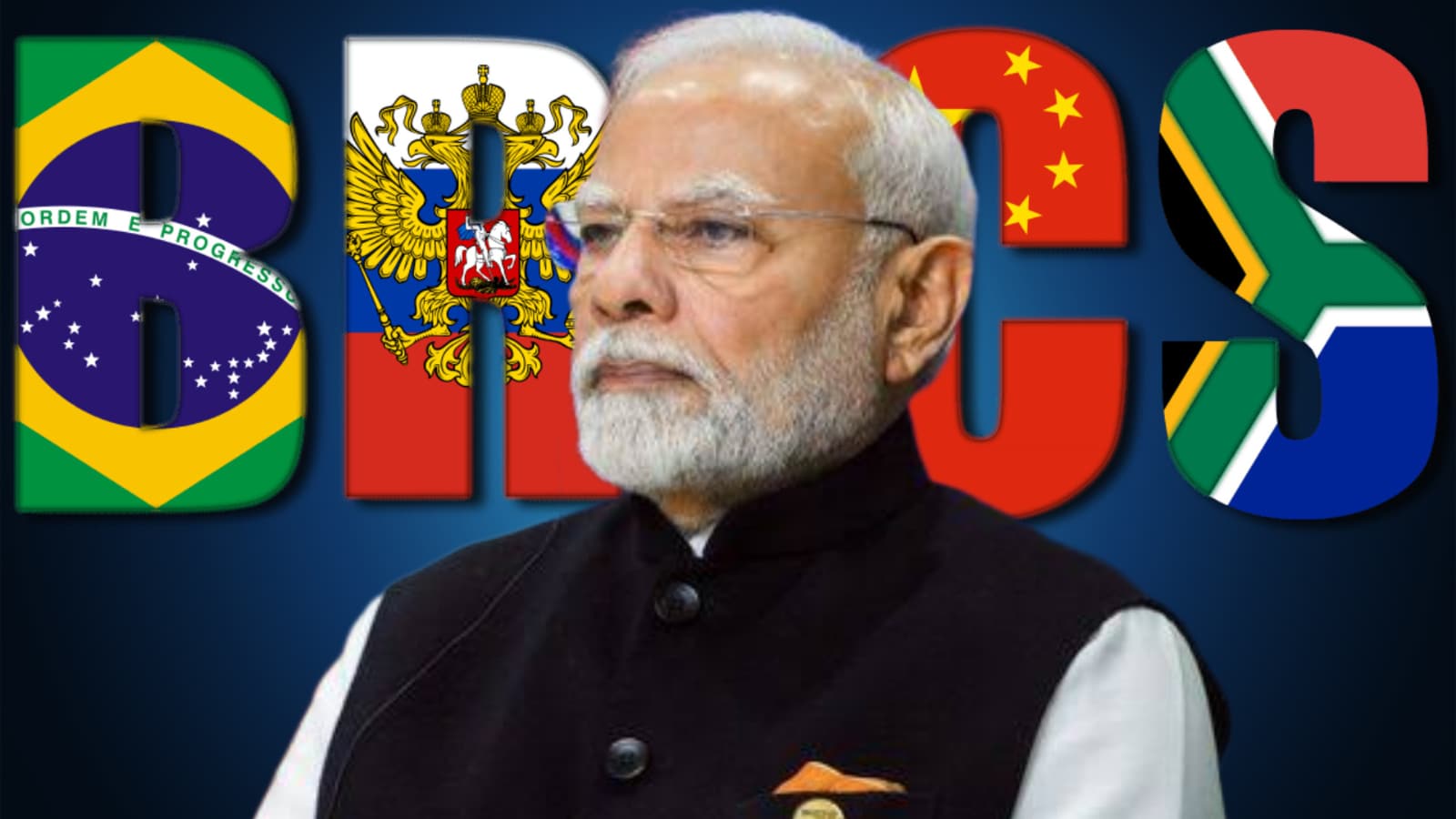By Morgan Stanley News18
On July 6, Prime Minister Narendra Modi will represent India at the BRICS Summit in Rio. At the summit, India will be joined by nine other participating nations, along with the host nation, Brazil, and observer countries. At the summit, India’s major objective is to push through its counter-terrorism agenda in light of the Pahalgam attack and the aftermath of it, which led to a conflict with the Pakistani state, and name and shame the terror-breeding nation.
However, it’s not the first time India has been pushing this agenda with a similar group of nations in attendance. Last month, at the SCO defence ministers’ meeting in Qingdao, India tried to raise the issue of cross-border terrorism emanating from Pakistan, only to be rebutted. Pakistan, with the help of China, forced down a counter-terror joint statement that failed to mention Pahalgam but conveniently included the struggle for independence in Balochistan, a pain point for the Pakistani state nonetheless, and conveniently labelled it terrorism. India refused to sign it. Nine of the 10 participating nations that did sign the joint statement included Iran, Russia, and China.
Three of those nations will also be present at the BRICS summit; therefore, the question arises whether they’d still try to rebut India’s genuine counterterror agenda. Will Russia ally with China and Iran? Will China once again be allowed to steamroll through the summit? Quite plainly, the answer is no.
For the first time in 12 years of the BRICS summit, the Chinese President has chosen to skip the forum altogether. The decision is even more surprising given that almost all member countries are facing imminent and costly tariff wars with the United States. Does Beijing no longer have leadership ambitions? Or is it now aware that, outside of inconsequential multilateral summits such as the SCO, its flat-track bullying and bulldozing diplomacy will not work? Or it’s the fact that Xi knew that he would be upstaged by Modi, who is the guest of honour in Brazil, and chose to spare his blushes.
Whatever the reason, Xi’s absence is telling. With a constrained Vladimir Putin appearing via video, PM Modi will be the most senior and most formidable leader present among the founding members. The centre of gravity at BRICS has decisively shifted. Unlike the SCO, this is a genuinely multipolar grouping where countries like Brazil and South Africa have robust, independent partnerships with India that act as a natural counterbalance to any Chinese overreach.
SCO: A Stage for China’s Games
The charade at Qingdao was predictable. The SCO has long been China’s diplomatic playground, a place where its writ runs large and inconvenient truths are swept under the carpet. The joint statement was a masterclass in Chinese manipulation designed not to combat terror but to protect its all-weather ally, Pakistan.
What’s even more appalling is that the very attack the SCO refused to condemn was enabled by Chinese technology. According to a detailed report by the ORF, militants in Kashmir are increasingly using sophisticated, military-grade Chinese hardware, such as Huawei satellite phones, encrypted communication systems, and GPS devices. China’s diplomatic cover for Pakistan at the SCO is, in reality, a cover for its own strategic footprint in the region’s terror ecosystem. It’s easy to be a bully when you own the playground.
It’s why the SCO fails to get a serious mention in geopolitical circles. Everyone knows it’s a rigged forum where China’s strategic interests trump any genuine commitment to collective security. But Beijing’s ability to dominate such a forum is a measure of the SCO’s weakness, not China’s strength. In the real world, among platforms of consequence, this kind of behaviour doesn’t fly.
India’s Shining Moment
BRICS is not the SCO, and Rio is not Qingdao. With Xi absent and Putin constrained, Modi arrives as the undisputed senior-most leader from the founding members. The spotlight will be on India, and for good reason. India’s economy, projected by Morgan Stanley to be the world’s fastest-growing in 2025-26, gives it the clout to match its ambitions.
Most importantly, unlike at the SCO, India is confident that the BRICS declaration will not only condemn the Pahalgam attack but will do so in language that is “to India’s satisfaction”, backed by a consensus of partners who understand the threat of state-sponsored terror. Key partners have already offered their solidarity.
India’s position is further fortified by its robust bilateral ties that serve as a powerful counterbalance to Chinese influence. The India-Brazil partnership, marked by talks of major defence pacts, including the sale of Indian Akash air defence systems, along with India’s strong relationships with South Africa and the UAE, creates a web of influence that China cannot simply bulldoze. At BRICS, India has the partners, the power, and the platform to ensure its voice is heard and its security interests are upheld.
But it’s not just that because India has favourable conditions, its concerns will be heard or met with interest. At the G7 summit this year in Canada, despite the geopolitical “khichdi”, which seems to be the theme wherever US President Donald Trump goes, India raised the issue, stood its ground, gathered the support needed, and pushed through with its agenda. Modi also rebuffed Trump’s claims that he was the one who made the ceasefire possible after pressing India and Pakistan on trade. And he did it directly to him on a call, after the US President couldn’t be bothered to stay for the entire summit.
The point of it is that India is not going to be bullied into signing or accepting narratives. India will carve its agenda, it will rise for itself and the Global South, and it will make itself heard on the world’s stage, and it will do so at a forum that keeps the West on the edge of their seats, unlike the SCO, which does not even get a whisper.
